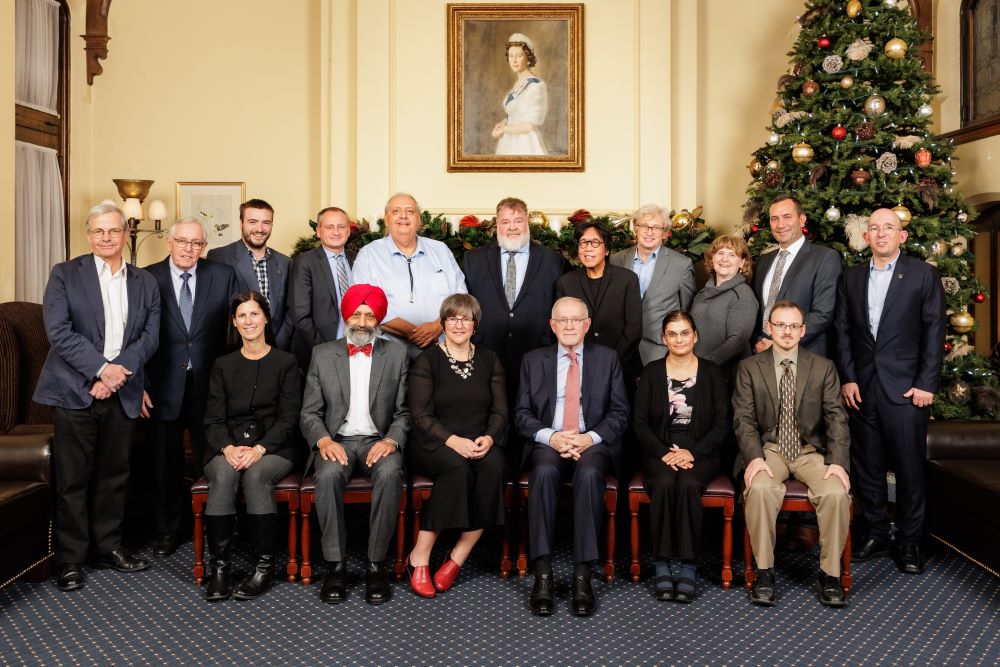Background and Initial Phase
From 2016 to 2022, the Canadian Neutron Initiative (CNI) working group was led by the VPs of Research from the University of Saskatchewan (Karen Chad, followed by Baljit Singh) and from McMaster University (Karen Mossman)
The work of the CNI culminated in the establishment of a pan-Canadian, not-for-profit corporation called “Neutrons Canada”, setting the stage for rebuilding Canada’s global presence in materials research with neutron beams.

Transition towards independent operation
On November 30, 2022, the CNI working group held a joint meeting with the founding Board of Directors for Neutrons Canada, transferring leadership of Canada’s neutron beam infrastructure program to the new, legal entity.
In the coming years, Neutrons Canada aspires to govern, manage, and represent Canada’s capacity for research with neutron beams, through access to world-leading neutron laboratories, operation of Canada’s domestic neutron facilities, and empowering Canadians to address major social and economic challenges.
This program aligns with a National Neutron Strategy, which the Fedoruk Centre helped to coordinate with partners and the Canadian neutron-user community, in response to the 2018 closure of the NRU reactor and the Canadian Neutron Beam Centre at Chalk River Laboratories.
The Fedoruk Centre's Role
Beginning in January 2023, the Fedoruk Centre provided interim management services, supporting Neutrons Canada’s transition towards independent operation. During a 23-month engagement, the Fedoruk Centre helped to secure 16 organizational Members for Neutrons Canada, established sound operating practices for the Board of Directors, and reinforced Saskatchewan’s leadership in the domain of Major Research Facilities.
To learn more about Neutrons Canada and the ongoing work of the organization, please visit their website.
Resources and Reports
CNI Publications
- National Neutron Strategy (March 30, 2022)
- Report on a Partnership with the European Spallation Neutron Source (February 22, 2022)
- Report on Outcomes of the CNI-CIFAR Roundtable on a National Neutron Strategy (January 28, 2021)
- Report on a Meeting of Canadian university VPs towards the establishment of “Neutrons Canada (January 29, 2020)
- Government of Canada response to the House of Commons Natural Resources Committee report on the nuclear sector (Recommendation #2, pp 6-8, October 2017)
